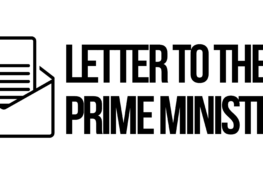Asylum Matters shares periodic updates with our network covering policy developments, campaigning opportunities and general information of interest to refugee and asylum advocates. Here are a few updates from November 2019, including:
- AIRE Service: Call for Action to Address Asylum Support Contract Failings
- Migrants Organise Launch ‘Promote the Migrant Vote’ Campaign
- Maternity Action’s Judicial Review of the NHS Charging Policies
- Home Office Immigration Surgeries in Religious & Community Organisations
- Separated Migrant Children Now in Scope of Legal Aid
- AIRE Service: Call for Action to Address Asylum Support Contract Failings
Asylum Matters has come together with more than 100 local and national organisations operating around the UK to support people in the asylum system to draw attention to the failings in the new Home Office contract for asylum support. The new service, delivered by Migrant Help, is intended to provide advice and guidance to service users on the asylum process. However, it has resulted in drastically increased waiting times for asylum support applicants, leaving many destitute and forced to rely on local charities to meet their basic living needs. Organisations dealing with the fallout from this poor service have written to the Minister for Safeguarding and Vulnerability, Victoria Atkins MP, calling for urgent action. We have stressed that the Home Office has ultimate responsibility for the management and oversight of this contract as the delivery of asylum support and accommodation is a public service delivered through public funds.
The Independent covered the story, referring mainly to the impact of the service on resolving urgent accommodation issues. The issue was also raised in Parliament including by Alex Cunningham MP and in the Home Affairs Select Committee’s evidence session, when Kate Green MP questioned the Home Secretary about her awareness of problems relating to the AIRE service. The Home Secretary replied, “it has been drawn to my attention that there are issues and problems with this contract,” and agreed to write to the Committee with further details, which you can now find here. A recent communication from Migrant Help outlining steps they are taking is attached.
Coming Up: In the next couple of weeks, Asylum Matters will be launching a number of resources to support frontline organisations to help people seeking asylum know their rights and hold the providers to account in accordance with the contractual framework. These will be circulated via this list. Asylum Matters will also be working with our partners over the coming months to document the failings of the current contracts and to work towards improvements. If you are interested in taking part in this work, please get in touch.
- Migrants Organise Launch ‘Promote the Migrant Vote’ Campaign
In advance of the General Election on 12 December, Migrants Organise have launched their Promote The Migrant Vote campaign to support migrants and BAME groups to engage with the upcoming election. More than 9 million people eligible to vote in the UK are at risk of not being able to vote in the upcoming election, which disproportionately impacts people from migrant and BAME backgrounds. This includes Commonwealth Citizens from more than 50 countries who are eligible to vote. The deadline for registration is 26th November so please help spread the word in your communities. You can do this by supporting the campaign on social media, on Twitter @MigrantVote and using #PromoteMigrantVote, running a registration drive in your area, or volunteering with Migrants Organise. You can email: [email protected] for more information.
- Maternity Action’s Judicial Review of the NHS Charging Policies
In October 2019, Maternity Action commenced a judicial review of NHS charging policies in England. The challenge is focused on migrant women and maternity care but has the potential to benefit a much wider group of migrants, including those in receipt of Section 17 support from local authorities. The challenge argues that the Government is in breach of the Public Sector Equality Duty in its rules on NHS charging as there is evidence that charging has a disproportionate, negative impact on women and the Government has not properly investigated this.
The courts are being asked to make a number of orders, including declaring that the Government is in breach of the Public Sector Equality Duty in failing to conduct a full inquiry into the equalities implications of the charging regulations, as well as conducting a full review of NHS charging to assess its impact on equalities groups. They are also seeking a declaration that a declaration that it is unlawful and discriminatory not to exempt Section 17 recipients, all survivors of FGM, sexual violence and domestic violence, as well as all maternity care from charging. Maternity Action has created a campaign toolkit for those looking to support their efforts, and are raising funds through CrowdJustice to support the case.
- Home Office Immigration Surgeries in Religious & Community Organisations
Further reports have emerged of the Home Office working with religious and community organisations to embed immigration enforcement teams in their services (see here and here). The Guardian reports that those who take part in these ‘immigration surgeries’ are assured the sessions are not offered as part of “an enforcement approach” to immigration cases and told that taking part may help them regularise their status. The Home Office response notes, “Fingerprints are not taken at immigration surgeries. No personal information of those attending surgeries are held by Immigration Enforcement, unless that person requests a voluntary return appointment.” Asylum Matters and Right to Remain have produced a briefing note outlining our concerns with the Home Office’s approach available here.
In addition, a number of organisations including Liberty and the Public Interest Law Centre wrote to all London councils raising separate concerns over the Home Office’s Rough Sleepers Support Service, which the letter states “is being used to co-opt councils and charities into the delivery of immigration controls,” and offers “no funding to help migrant and refugee rough sleepers access independent immigration advice or accommodation.”
- Separated Migrant Children Now in Scope of Legal Aid
Vulnerable migrant children who have been separated from their parents will get quicker and simpler access to legal aid, after new government legislation came into force on 25 October 2019. The Legal Aid for Separated Children Order 2019 will bring non-asylum immigration and citizenship matters into the scope of legal aid for under 18s who are not in the care of a parent, guardian or legal authority. Previously, vulnerable children making such applications to remain in the UK could only apply for legal aid through the Exceptional Case Funding (ECF) scheme. The Ministry of Justice has worked with The Children’s Society and other children’s charities on the amendment and will continue to do so as it comes into force.



